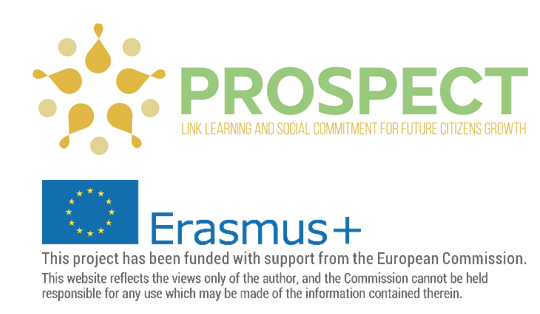ABOUT THE PROJECT:
The project intends to develop and test an education model addressed to all school level, starting from kindergarten to secondary junior school, focused on service learning, as crucial moment for passing from knowledge (know) to skill (know how to be) and competence (know how to do). This process will guarantee the training of a citizen able to act with critical thinking and to face the new challenge of the global society.
European countries need citizens to be engaged in social and political life not only to ensure that basic democratic values flourish but also to foster social cohesion at a time of increasing social and cultural diversity. In order to increase engagement and participation, people must be equipped with the right knowledge, skills and attitudes. Civic competences can enable individuals to participate fully in civic life but they must be based on sound knowledge of social values and political concepts and structures, as well as a commitment to active democratic participation in society.
According to this perspective, service learning could be an effective teaching methodology which combines theoretical study, happening inside the school with the commitment in favour of local community. For defining a methodology service learning, this link shouldn’t be casual or occasional, but it is necessary that the study is effectively finalized to give a contribution to the solution of a real problem of the local community. This contribution has a theoretical side – the deepening of the problem – and a practical side, including concrete activities of social service.
ACTIVITIES TO BE DEVELOPED:
- Collection and analysis of interesting practices in at least six European member states about the strengthening of global citizenship skills in curricular activities, for the monitoring of their impact on pupils’ competences.
- Participatory design of a global educational model that incorporates global citizenship skills, service learning and debate in the curricula for formal education.
- Design and implementation of peer learning experiences for teachers and trainers to share and acquire the skills for the implementation and validation of the model in their classroom settings.
- Testing the model in all levels of education covered by the proposal in at least three classes for each participating country, based on a common framework.
- Reporting the results of the experimented educational practices implemented in the project, so to multiply the project effects and results.

